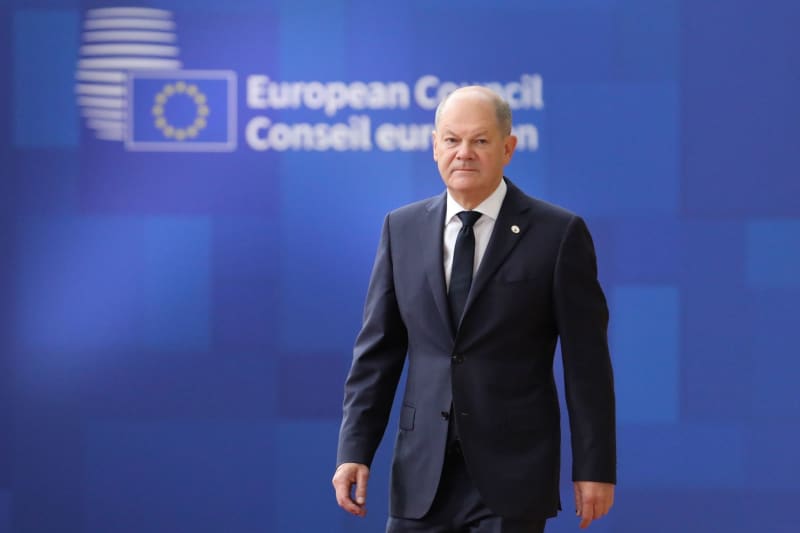German Chancellor Olaf Scholz expressed his skepticism on Thursday about the efficiency of possible new reception centers outside the European Union for migrants without the right of residence.
“It is clear that concepts that represent very few small declines when you look at the numbers are not really the solution for a country as big as Germany,” Scholz said as he arrived at an EU summit in Brussels, where migration is expected will take place. top of the agenda.
Leaders are expected to discuss how countries outside the EU can be involved in the processing and reception of asylum seekers, and how irregular migration can be reduced and deportations increased.
Italy announced this week that the first migrants had been taken to new controversial asylum centers in Albania.
“We had more than 300,000 people who came to Germany irregularly last year,” Scholz said, adding that centers that could house 1,000 or 2,000 people at a time would not help much.
“Reducing irregular migration is a prerequisite for the openness we need, including for the immigration of skilled workers,” Scholz said.
Migration has been a controversial topic in the EU for years. Amid a string of electoral successes for far-right parties across the bloc and a changing security landscape, individual countries are taking increasingly restrictive positions.
Poland’s recent plans to temporarily suspend the right to asylum at its borders with Russia and Belarus were welcomed by many EU leaders.
Warsaw accuses Moscow and Minsk of pushing migrants towards the Polish border, which is also an external border of the EU, to destabilize the bloc and undermine security.
Finland, which borders Russia for about 800 miles (1,340 kilometers) to the east, closed their shared border last year over allegations that Moscow deliberately brought undocumented asylum seekers to its crossings.
Arriving at the summit on Thursday, Finnish Prime Minister Petteri Orpo said he “supports and understands Poland” and called for a solution at EU level.
Austrian Chancellor Karl Nehammer called for “European solidarity with Poland”.
EU countries agreed earlier this year to a major reform aimed at tightening the bloc’s migration and asylum laws that has been in the works for years, but implementation of the new legislation could take years, with some calling for the process to be delayed to speed up.
Migration is not the only topic on the summit agenda where the 27 EU members are struggling to find a common approach.
Ukrainian President Volodymyr Zelensky joined EU leaders to present his vision for ending the war and a plea for further support. However, Russia-friendly Hungary is blocking more military aid.
Leaders are also due to discuss the conflict in the Middle East after capitals struggled to agree on a response that could help stop the fighting.







